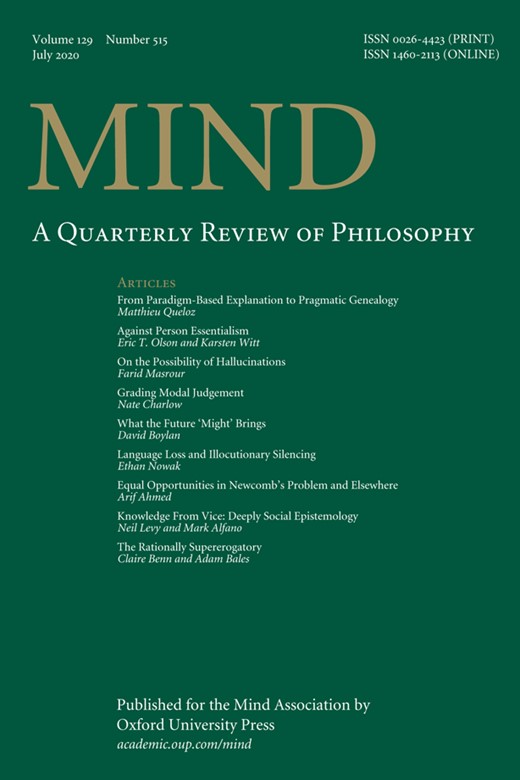-
Views
-
Cite
Cite
Neil Levy, Mark Alfano, Knowledge From Vice: Deeply Social Epistemology, Mind, Volume 129, Issue 515, July 2020, Pages 887–915, https://doi.org/10.1093/mind/fzz017
Close - Share Icon Share
Abstract
In the past two decades, epistemologists have significantly expanded the focus of their field. To the traditional question that has dominated the debate — under what conditions does belief amount to knowledge? — they have added questions about testimony, epistemic virtues and vices, epistemic trust, and more. This broadening of the range of epistemic concern has coincided with an expansion in conceptions of epistemic agency beyond the individualism characteristic of most earlier epistemology. We believe that these developments have not gone far enough. While the weak anti-individualism we see in contemporary epistemology may be adequate for the kinds of cases it tends to focus on, a great deal of human knowledge production and transmission does not conform to these models. Furthermore, the dispositions and norms that are knowledge-conducive in the familiar cases may not be knowledge-conducive generally. In fact, dispositions that, at an individual level, count as epistemic vices may be epistemic virtues in common social contexts. We argue that this overlooked feature of human social life means that epistemology must become more deeply and pervasively social.



